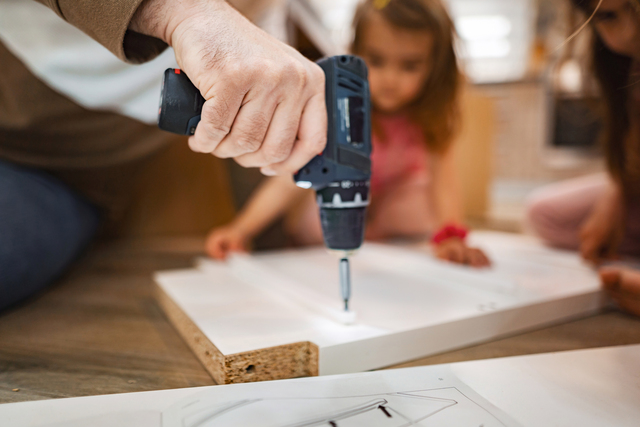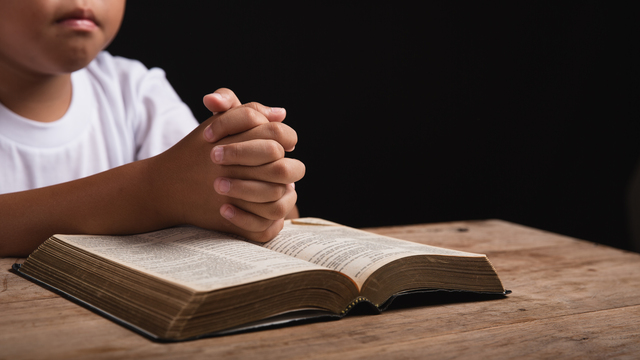Creating Balance
How to Teach Academics and Life Skills Together

Homeschooling Beyond the Basics
As home educators, we want to help our children develop strong academic skills like critical thinking and problem-solving. The whole purpose of homeschooling is to provide as sound an education as we can. We want our kids to be diligent students, hard workers, and creative thinkers.
But homeschooling isn’t just about textbooks and tests, it’s also about teaching your children how to thrive in real life. Between laundry piles, math lessons, and meal prep, we have a unique opportunity to weave life skills into academics. Home is the ideal environment for children to integrate common life skills with formal education.
A great advantage to homeschooling is that we can include intentional planning sessions for school, chores, and other projects into our everyday. As homeschoolers, we have the flexibility to tailor our children’s education by blending academics with life skills. This helps them grow into capable, well-rounded, confident adults.
Why Balance Is Essential in Homeschooling
If we’re not mindful, we can become bored and burned out in homeschooling. That’s why it’s important to vary our daily routines by alternating hands-on activities and bookwork. We can even swap hands-on activities for traditional lessons. One example is practicing math by either dividing or doubling a cookie recipe.
We should be building readiness in our children for real-world responsibilities. Now is the time to prepare them to take on responsibilities as they grow and mature.
- Integrate both soft and hard skills into your daily curriculum. For example, create and assign a daily schedule for your child to follow and make sure they’re sticking to their schedule.
- Model real-life management in everyday routines. For instance, you can designate responsibility to your older kids for their own laundry.
We should also seek to develop strong character and independence. Even kindergartners are already forming character qualities that will impact their future learning and decision-making. It’s crucial to encourage godly character traits and independence as a part of everyday schooling. Chores aren’t just about clean floors, they teach stewardship and responsibility, values that reflect God’s design for work and family.
- Encourage independence by helping your children learn how to budget finances. A practical exercise for them is to plan and budget for a homemade pizza night.
- Give your children leadership opportunities in the family. For example, have them host a family game night. Let them oversee everything from setup to cleanup.
Core Life Skills to Teach Alongside Academics
Cooking
Hands-on cooking will help build confidence and become more adept in the kitchen.
- Assign regular kitchen duties, such as having each child prepare lunch once a week.
- Let your children work together to prepare a dinner for the entire family. For example, one child can chop vegetables while another cooks pasta.
- Reinforce math and science concepts through cooking. For example, you can teach fractions while you measure ingredients. You can also discuss chemical reactions while baking.
Cleaning
- Teach and assign basic household chores your children can do weekly. They can keep the same chores or trade off with their siblings.
– Bathroom cleaning (toilet, sink, mirror)
– Floors (sweeping, mopping, vacuuming)
– Laundry (sorting, washing, folding)
– Kitchen cleanup (dishes, counters, dishwasher)
- Give your children responsibilities, such as caring for any pets you may have. For instance, let them take turns feeding and walking the dog or cleaning the cat’s litterbox.

Budgeting
One of the most important life skills your children can learn is how to budget finances.
- Allow your child to set a mock grocery budget and plan out meals for the week.
- If you give your child an allowance, help them learn how to budget according to needs and wants.
Home Repairs
Many kids grow up not knowing how to perform basic home maintenance tasks. Give your child opportunities to practice minor repairs around the house.
- Teach your children how to replace air filters or light bulbs.
- Show how to unclog a sink, tighten a loose screw, or lubricate a squeaky hinge.
Vehicle Maintenance
Another helpful skill you can teach your older children is how to perform basic car maintenance.
- Show them how to check the oil level.
- Point out the main parts of the car engine under the hood.
- Teach them how to check the air pressure in the tires.
- Older kids and teenagers can also learn how to change a flat tire.
Creating Your Balanced Family Plan
Creating a balanced family plan means setting clear educational and life goals for your children, matching their natural interests with responsibilities, and building flexible routines that blend academics with life skills. Keep your approach adaptable, focus on progress over perfection, and use practical tools and curricula that connect learning to everyday life.
Take advantage of organizational tools to help manage your daily schedule.
- A variety of digital tools for family coordination can be a great asset in managing your day. Cozi is ideal for chores and family meal planning. The Homeschool Hub is great for managing your schoolwork and adapting your calendar.
- Look for programs that provide practical relevance to everyday life. For instance, BJU Press Math.
- weaves real-world scenarios into word problems. These scenarios include time management, measurement, and budgeting in students’ daily work.
- Supplement your curriculum with subject-specific enrichment. For example, incorporate BJU Press Science with home experiments or nature journaling. These ideas give your child more hands-on learning.
Final Encouragement
Remember that your goal should be not only to teach your children but also to prepare them for adulthood. A balanced, well-rounded education includes both academics and life skills. This can develop students’ intellectual, financial, and common-sense abilities at the same time.
Life skills are not like electives and extracurricular activities. They are a crucial part of your children’s education. When you incorporate life skills, academic concepts become more relevant and meaningful. Children are more likely to mature and become responsible.
Remember that the goal is to fuel children’s lifelong passion for learning and curiosity. A second and equally important goal is to provide an environment conducive to both education and practical life skills. Keep fostering an environment of learning where both academics and life skills matter. If you do, your children will understand the correlation between school and practical skills. They will also gain independence and build confidence. And eventually, they can step out into the world as responsible, dependable adults.
*This article was originally posted on the Homeschool Blog from BJU Press. Click here for link

BJU Press Guest Writer
This post was written by a guest writer for BJU Press. If you have any questions regarding this post, please direct them to [email protected].
















